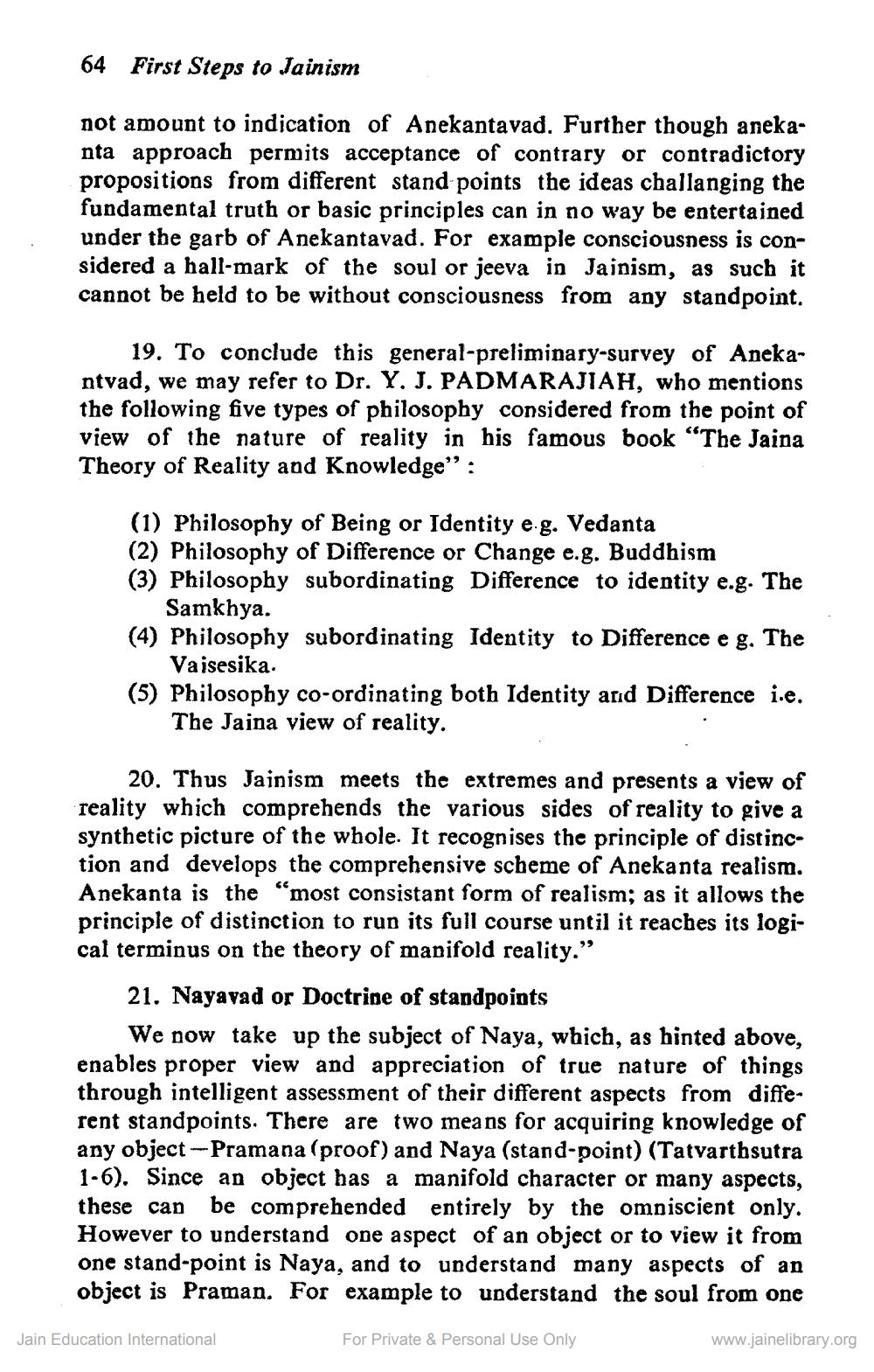________________
64 First Steps to Jainism
not amount to indication of Anekantavad. Further though anekanta approach permits acceptance of contrary or contradictory propositions from different stand points the ideas challanging the fundamental truth or basic principles can in no way be entertained under the garb of Anekantavad. For example consciousness is considered a hall-mark of the soul or jeeva in Jainism, as such it cannot be held to be without consciousness from any standpoint.
19. To conclude this general-preliminary-survey of Anekantvad, we may refer to Dr. Y. J. PADMARAJIAH, who mentions the following five types of philosophy considered from the point of view of the nature of reality in his famous book "The Jaina Theory of Reality and Knowledge" :
(1) Philosophy of Being or Identity e.g. Vedanta
(2) Philosophy of Difference or Change e.g. Buddhism
(3) Philosophy subordinating Difference to identity e.g. The Samkhya.
(4) Philosophy subordinating Identity to Difference e g. The Vaisesika.
(5) Philosophy co-ordinating both Identity and Difference i.e. The Jaina view of reality.
20. Thus Jainism meets the extremes and presents a view of reality which comprehends the various sides of reality to give a synthetic picture of the whole. It recognises the principle of distinction and develops the comprehensive scheme of Anekanta realism. Anekanta is the "most consistant form of realism; as it allows the principle of distinction to run its full course until it reaches its logical terminus on the theory of manifold reality."
21. Nayavad or Doctrine of standpoints
We now take up the subject of Naya, which, as hinted above, enables proper view and appreciation of true nature of things through intelligent assessment of their different aspects from different standpoints. There are two means for acquiring knowledge of any object-Pramana (proof) and Naya (stand-point) (Tatvarthsutra 1-6). Since an object has a manifold character or many aspects, these can be comprehended entirely by the omniscient only. However to understand one aspect of an object or to view it from one stand-point is Naya, and to understand many aspects of an object is Praman. For example to understand the soul from one
For Private & Personal Use Only
www.jainelibrary.org
Jain Education International




